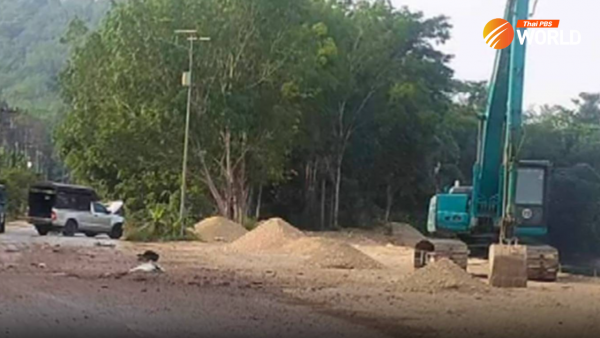Treatment anywhere’: A new era dawns for Thailand’s universal healthcare scheme

The government’s universal healthcare scheme will make a groundbreaking leap next year, when Thais will be allowed to receive free medical treatment anywhere in their home province, including private hospitals, simply by presenting their national ID card.
“We are revolutionizing the country’s public healthcare. The paradigm will change for the first time in 20 years,” said Dr Surapong Suebwonglee, secretary to the National Healthcare Service Plan Development Committee.
In the initial phase, individuals covered by the healthcare scheme in four pilot provinces, namely Roi Et, Phetchaburi, Phrae and Narathiwat, will be able to enjoy this privilege from January 8. No prior registration is required; members can visit any medical facility and gain treatment by showing their national ID.
“I am fully confident this move will benefit the public,” Roi Et’s public health chief Dr Suradet Chawadet said.
“Let’s see how far we can go with the implementation.”
Hundreds of hospitals and clinics in Roi Et, including 400 private medical facilities, have now integrated their databases for the initial phase of the plan.
If the first phase is successful, the second phase will commence in March, expanding to eight more provinces before being gradually rolled out nationwide within a year.
Major milestone since 2001
The universal healthcare scheme, launched in 2001 as the brainchild of the Thai Rak Thai Party (TRT) government, has evolved significantly. Initially costing users 30 baht per visit, it marked a breakthrough in Thailand’s healthcare sector by providing free or low-cost medical services.
The scheme, now covering some 48 million people, offers a guarantee of accessible healthcare provided by the state.
Gone are the days when ailing people had to worry about being financially ruined by medical costs or being denied treatment if they or their family had no proof they could cover their bills.
The current ruling Pheu Thai Party, a reincarnation of TRT, believes it is now time for Thailand to make another breakthrough in its healthcare services.
Dr Surapong, who has long been affiliated with Pheu Thai, said policymakers hope to make it easier for people to seek treatment under the universal healthcare scheme.
“We are going to leverage technology to deliver better and more convenient services to people,” he said.
The scheme currently requires people to seek treatment from a specific hospital near their home. Most hospitals participating in the universal healthcare scheme, which is managed by the National Health Security Office, are state-run.
Despite the noble intentions of the universal healthcare scheme, many people express dissatisfaction with the current state of affairs. Two primary issues – long queues and a shortage of specialist services – are significant hurdles for those seeking free treatment under the program.
Private hospitals, meanwhile, are not keen to participate in the scheme, as government funding is set at a flat rate per patient treated. The latest rate approved by the Cabinet stands at 3,474.24 baht per patient per year.
Such tight budgeting means participating facilities need to be savvy about managing their funds, otherwise, they can end up making losses. Since the scheme can’t attract enough private hospitals to participate, state hospitals are usually overcrowded and often overwhelmed.
Integration of tech and data
Dr Surapong believes technology and data integration hold the key to improving the universal healthcare scheme.
“We will ease overcrowding and other problems by using tech and data solutions,” he said.
Once data from medical facilities around the country is integrated, patients will be freed from their reliance on a single hospital.
Dr Pongsathorn Pokpermdee, acting deputy permanent secretary for the Public Health Ministry, explained that the data will also be shared with laboratories and pharmacies.
“Technology has enabled the integration of data and effective identity checks. Online platforms will be available for patients and medical services,” he said. “Doctors’ certificates can also be retrieved and checked online.”
An integrated system will also allow for appointment scheduling, reminders and the delivery of prescriptions to the patient’s home.
Once this idea is successfully implemented, Dr Surapong anticipates that overcrowding in hospitals will ease significantly.
Services will become more streamlined, he said. For instance, patients will not have to rush to hospitals for minor services like blood tests. Instead, they can get their test done at a participating laboratory, which can then upload test results in the Cloud for doctors to check later.
This comprehensive approach will also allow patients with chronic diseases, like diabetes, to undergo basic health checks and receive prescribed medicines without paying monthly visits to the doctor. These patients may just need to make doctor’s appointments once a year.
Looking ahead, Dr Pongsathorn said the Public Health Ministry will also improve the reimbursement process for medical service providers, aiming to make payments within 72 hours of service delivery.
“With a better payment system, more private hospitals will agree to join the universal healthcare scheme,” Dr Surapong said.
Doubts and caveats
The revolutionary “treatment anywhere” move is being lauded for its potential benefits, but some doctors have expressed doubts.
Dr Somsak Tiamkao, from Khon Kaen University’s Faculty of Medicine, emphasized the need for efficient data integration to avoid redundant treatment.
He also said the government should promote public awareness and encourage patients to first seek treatment from primary healthcare units to get a referral, instead of rushing straight to a bigger hospital on their own.
Dr Supattra Srivanichakorn, who heads the Royal College of Family Physicians of Thailand, said the government’s first step should be investing in primary healthcare units.
“They have an important role to play, so they should be provided with necessary resources,” she said, pointing out that the budget granted to health-promotion subdistrict hospitals is far lower than the amount provided to specialized medical facilities.
Dr Supat Hasuwannakit, director of Saba Yoi Hospital and also head of the Rural Doctors Society, said if small hospitals do not receive sufficient support, they may end up lying empty as patients flock to bigger hospitals for treatment.
By Thai PBS World’s General Desk






